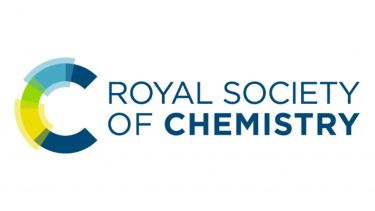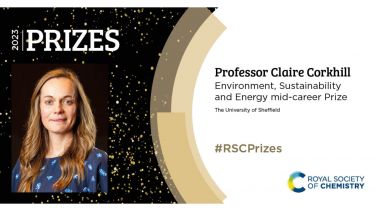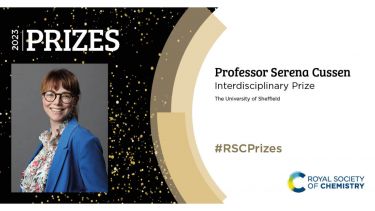- Professor Claire Corkhill has been named winner of the Royal Society of Chemistryās Environment, Sustainability and Energy mid-career Prize.
- Professor Serena Cussen has been named winner of the Royal Society of Chemistryās Interdisciplinary Prize.
- This yearās winners join a prestigious list of past winners in the RSCās prize portfolio, 60 of whom have gone on to win Nobel Prizes for their work, including 2022 Nobel laureate Carolyn Bertozzi and 2019 Nobel laureate John B Goodenough.
Professor Claire Corkhill,
Professor Corkhill won the prize for advances in ceramic and glass materials for the safe immobilisation of radioactive waste through fundamental understanding of surface degradation processes, and advancing multi-stakeholder relationships to embed materials science in government policy. Professor Corkhill also receives Ā£3,000 and a medal.
After receiving the prize, Professor Corkhill said: āToo infrequently in the pursuit of net zero energy solutions do we stop to think about waste. This is so terribly important when it comes to radioactive waste generated from nuclear energy, because we will pass this onto future generations. I am absolutely delighted that the RSC have acknowledged my research in this field, as I hope it will help to start a wider conversation about radioactive waste.ā
The success of future nuclear energy generation, thought to be a low CO2 energy option, is reliant upon the safe disposal of radioactive waste. Government policy is that radioactive waste, generated from nuclear energy, should be buried in a deep underground facility to keep it safely away from humans over the hundreds of thousands of years that it will be radioactive. Professor Corkhillās research tests the safety of this approach by measuring how quickly radioactive wastes will dissolve in natural groundwater when they are in such a facility.
Professor Serena Cussen,
Professor Cussen won the prize for interdisciplinary and original contributions to the development of new functional materials for energy storage and in-depth study of their local structure and dynamics. Professor Cussen also receives Ā£5,000 and a medal.
After receiving the prize, Professor Cussen said: āI feel extremely proud of all the researchers, technicians and students I have had the opportunity to work with in my research group ā this prize is such a lovely recognition of the work we have done together.ā
Professor Serena Cussen heads the department of materials science and engineering at the University of 91Ö±²„. As a materials scientist, Serena is fascinated by the role synthesis plays in dictating the shape or chemistry of materials. This is because size and shape can have big implications for the resulting material properties. Often, by fine-tuning reactions, it is possible to get some control over its final form and shape.
Serenaās group is especially interested in developing new ways of making materials more efficiently and removing chemistryās reliance on expensive or less abundant elements. Through the Faraday Institution, Serena is leading a UK-wide project on the development of next-generation cathode materials for electric vehicles called FutureCat. The project is a consortium of over 50 researchers, partnering with industry, working on developing new syntheses routes to cathodes, discovering brand new chemistries, and applying advanced characterisation techniques and computational tools to understand and manipulate materials.
Dr Helen Pain, Chief Executive of the Royal Society of Chemistry, said:
āThe chemical sciences are at the forefront of tackling a range of challenges facing our world. From fundamental chemistry to cutting-edge innovations, the work that chemical scientists do has an important role to play in building our future.
āThe RSCās prizes programme enables us to reflect on and celebrate the incredible individuals and teams whose brilliance enriches our knowledge, advances our understanding, and brings new ideas and technologies that benefit society as a whole. Weāre very proud to recognise the contributions of our winners today.ā
The Royal Society of Chemistryās prizes have recognised excellence in the chemical sciences for more than 150 years. In 2019, the organisation announced the biggest overhaul of this portfolio in its history, designed to better reflect modern scientific work and culture.
The Research and Innovation Prizes celebrate brilliant individuals across industry and academia. They include prizes for those at different career stages in general chemistry and for those working in specific fields, as well as interdisciplinary prizes and prizes for those in specific roles.
For more information about the RSCās revised prizes portfolio, visit .



